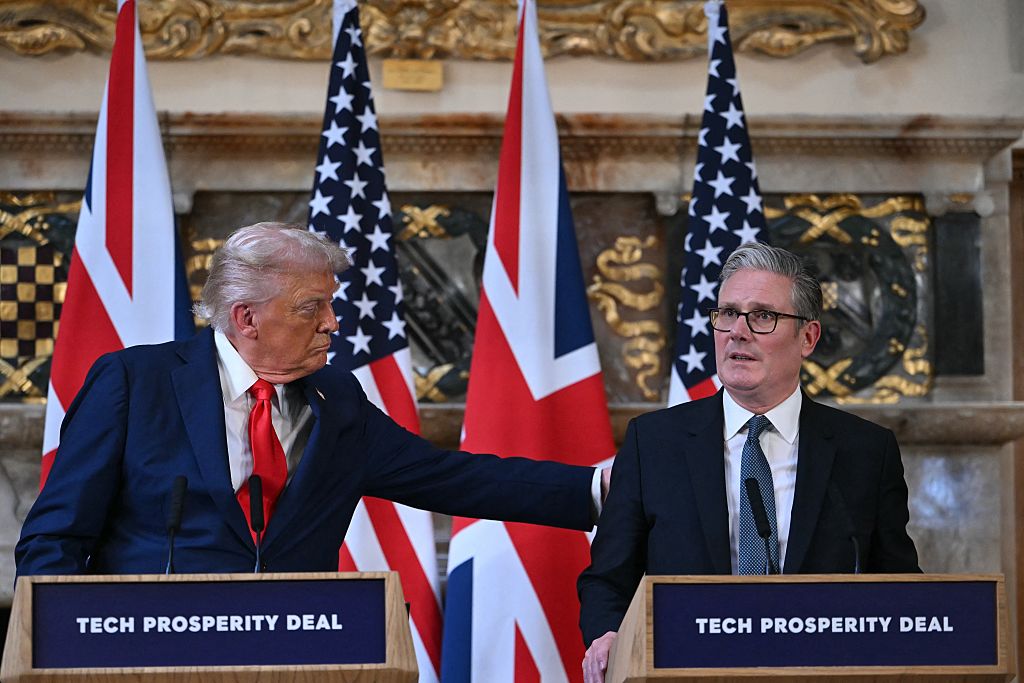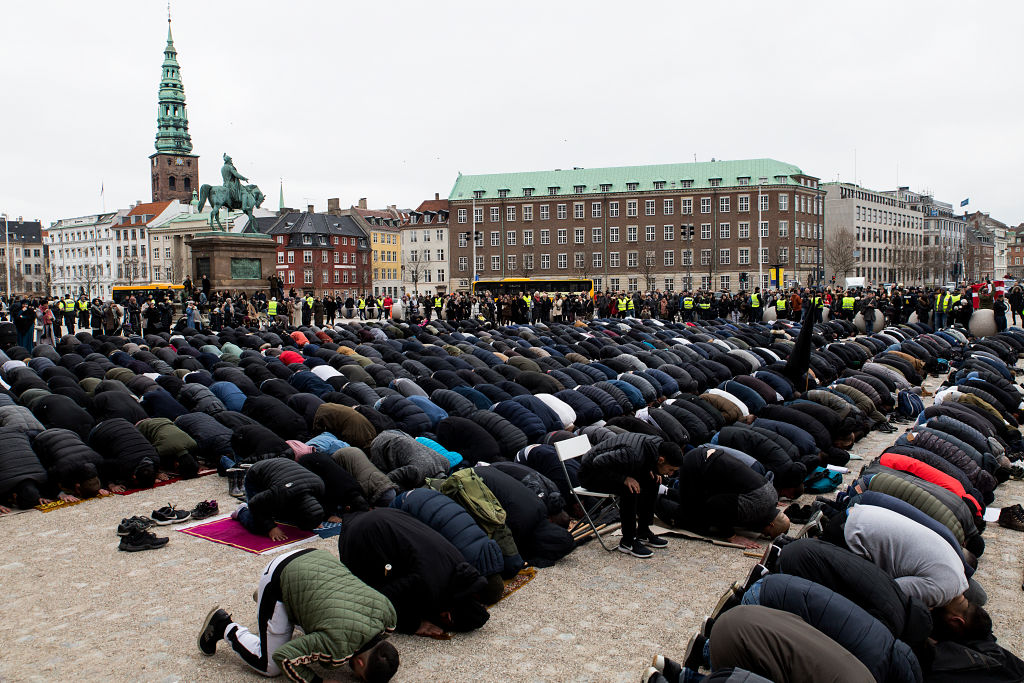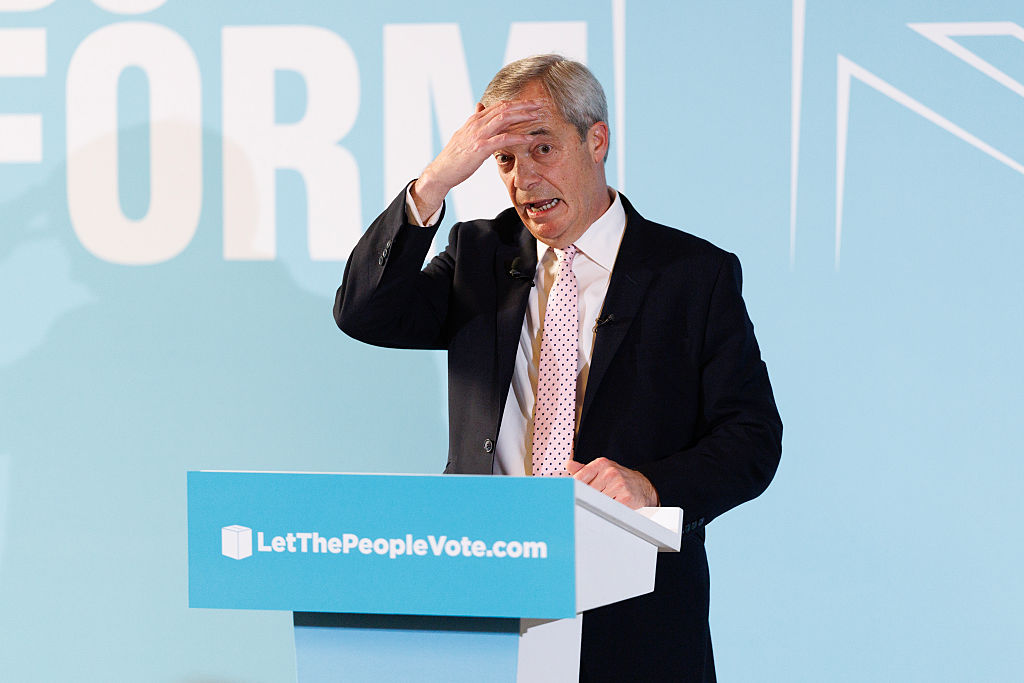As Donald Trump visited the United Kingdom this week, the press seized the opportunity to confront both him and Prime Minister Keir Starmer about the issue of Hamas and Britain’s posture towards Palestinian statehood. In a rare moment of lucidity, and perhaps influenced by the firm presence of the President, Starmer appeared, briefly, to align his moral compass. Faced with questions over why his government was proceeding with the recognition of a Palestinian state in the wake of the October 7th atrocities, Starmer delivered what may be his most unequivocal statement to date:
“Let me be really clear about Hamas: They’re a terrorist organization who can have no part in any future governance in Palestine. What happened on October 7th was the worst attack since the Holocaust. We have extended family in Israel. I understand first-hand the psychological impact that that had across Israel. So I know exactly where I stand in relation to Hamas. Hamas of course don’t want a two-state solution. They don’t want peace. They don’t want a ceasefire. I’m very clear where I stand on Hamas.”
It was also strikingly convenient that, at this critical juncture, Starmer suddenly remembered his extended family in Israel. One wonders how reassured they feel about his use of them in such a moment – deployed as a sort of bauble to decorate a policy that is not only contradictory but potentially dangerous. If they are to serve as moral ballast for his position, they deserve more than to be name-dropped in the midst of strategic incoherence.
Had Starmer stopped there, one might have mistaken him for a leader with conviction. But in the next breath, he returned to form, assuring the press that his decision to recognize a Palestinian state had been set out in July and had “nothing to do with this state visit.” He insisted that the matter had been discussed with president Trump “as you would expect among two leaders who respect each other and like each other and want to bring about a better solution in the best way we can.”
The irony, of course, is that just as Starmer found the fortitude to call Hamas what it is, the group was issuing yet another declaration of grotesque barbarism. In a statement released by its al-Qassam Brigades, Hamas promised to turn Gaza into a “graveyard” for Israeli soldiers, to use hostages as human shields, and to ensure that not a single captive would be recovered alive. They referenced Ron Arad, the long-lost Israeli airman abducted by Iran-backed terrorists in Lebanon, as a model for how future hostages would disappear without trace.
“We have prepared for you an army of martyrs,” they declared. “Your prisoners are scattered throughout Gaza City’s neighborhoods, and we will not spare their lives… you will not recover a single prisoner, neither dead nor alive, and their fate will be the same as that of Ron Arad.”
So when Starmer finally managed to utter the truth about Hamas, it was as though he had been coaxed into it by the magnetic clarity of the man standing beside him. Trump, sensing the moment, actually grinned with approval and gave him a pat on the back – like a dog that had finally learned to sit when commanded. It is said the two spent around thirty minutes alone before the press conference, with no aides present. One can only imagine what was said, but it would not be a stretch to presume that Trump reminded him of the basics: do not reward genocidal jihadists with the trappings of statehood.
Yet, despite the bluster, Starmer still intends to confer symbolic recognition upon a Palestinian entity that does not exist in any coherent, lawful or democratic form. He has mouthed the words of moral clarity, but he cannot follow them through with coherent policy. This is the essence of his weakness: he learns to say the lines but not to dance the dance. For all the talk of opposing Hamas, his government is giving succor to its cause by validating the fantasy of a state that Hamas itself openly defines through martyrdom, bloodshed, and the annihilation of Jews.
Starmer’s rhetoric on Hamas is thus at odds with every other aspect of his posture. He decries their atrocities, then gestures toward recognition of a statehood project that would reward them. He acknowledges they do not want peace, then backs a policy that empowers them. He understands their strategy of hostage warfare, then gestures towards concessions that would only embolden it. And he said nothing of the failures of literally all other mainstream Palestinian leaders and political movements to act with decency, respect for humanity or international law, or indeed any ambition of peaceful coexistence with the Jewish state. If not Hamas, Sir Keir, then who? It is not biased or racist to state these facts, however distressing and undesirable: it is merely looking a hard truth in the eye. Without that, how else can the situation be improved?
Starmer’s position makes Britain appear rudderless. If the leader of His Majesty’s Government cannot translate his apparent convictions into action, if he cannot resist the theater of international appeasement even in the face of Islamist terror, then he diminishes not only himself but the standing of the nation he represents. One hopes that Trump, in those thirty private minutes, managed to plant a seed of realism. But there is, as yet, no sign that it has taken root.


























Leave a Reply